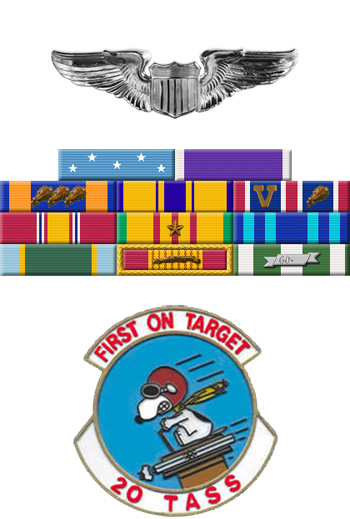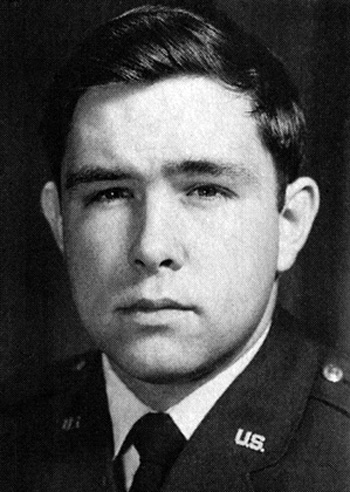Steven Bennett was born on April 22, 1946, in Palestine, Texas, and grew up in Lafayette, Louisiana. He was commissioned a 2Lt in the U.S. Air Force through the Air Force ROTC program at the University of Southwestern Louisiana on August 12, 1968. Bennett completed Undergraduate Pilot Training at Webb AFB, Texas, in October 1969, and after completing combat crew training in the B-52 Stratofortress, was assigned to the 325th Bomb Squadron at Fairchild AFB, Washington, in May 1970. He flew combat missions as a B-52 pilot while on TDY in Southeast Asia from September to December 1970. In April 1972, Capt Bennett completed OV-10 Bronco upgrade training and served as a forward air controller with the 20th Tactical Air Support Squadron at Da Nang AB in the Republic of Vietnam from late April 1972 until he was killed in action on June 29, 1972. Steven Bennett is buried at the Lafayette Memorial Park in Lafayette, Louisiana. He was survived by his wife Linda and his daughter Angela.
His Medal of Honor Citation reads:
Capt. Bennett was the pilot of a light aircraft flying an artillery adjustment mission along a heavily defended segment of route structure. A large concentration of enemy troops was massing for an attack on a friendly unit. Capt. Bennett requested tactical air support but was advised that none was available. He also requested artillery support but this too was denied due to the close proximity of friendly troops to the target. Capt. Bennett was determined to aid the endangered unit and elected to strafe the hostile positions. After 4 such passes, the enemy force began to retreat. Capt. Bennett continued the attack, but, as he completed his fifth strafing pass, his aircraft was struck by a surface-to-air missile, which severely damaged the left engine and the left main landing gear. As fire spread in the left engine, Capt. Bennett realized that recovery at a friendly airfield was impossible. He instructed his observer to prepare for an ejection, but was informed by the observer that his parachute had been shredded by the force of the impacting missile. Although Capt. Bennett had a good parachute, he knew that if he ejected, the observer would have no chance of survival. With complete disregard for his own life, Capt. Bennett elected to ditch the aircraft into the Gulf of Tonkin, even though he realized that a pilot of this type aircraft had never survived a ditching. The ensuing impact upon the water caused the aircraft to cartwheel and severely damaged the front cockpit, making escape for Capt. Bennett impossible. The observer successfully made his way out of the aircraft and was rescued. Capt. Bennett's unparalleled concern for his companion, extraordinary heroism and intrepidity above and beyond the call of duty, at the cost of his life, were in keeping with the highest traditions of the military service and reflect great credit upon himself and the U.S. Air Force.
|



